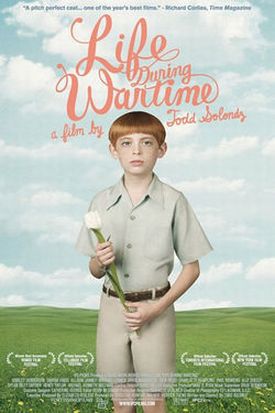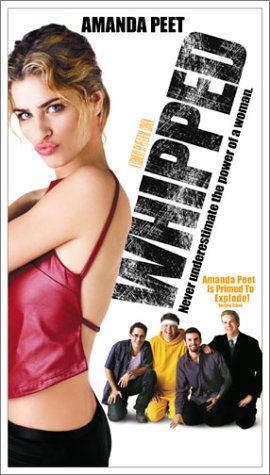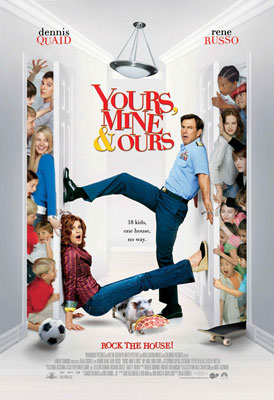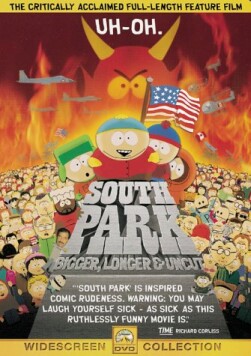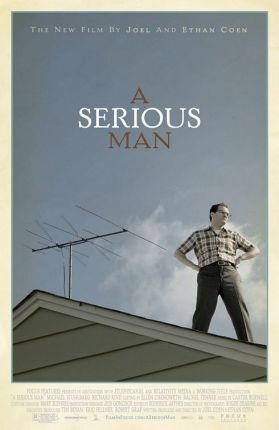Life During Wartime
We watch so you don’t have to — not that you (or anybody else) would want to. I notice that, three weeks into its domestic release, Todd Solondz’s Life During Wartime, a movie that cost $4.5 million to make, had grossed $154,455 at the box office. Anyone who saw Mr Solondz’s Happiness (1998), to which his new movie is something between a sequel and a remake, will have no difficulty understanding why. It is even more gloomy and miserable than its predecessor, though no less ambitious. In Happiness, the slightly saving grace was that you were just about able to glimpse a world outside the hell to which Mr Solondz had consigned his characters — a world in which Happiness itself could have been something more than the savage irony he treated it as. He’s still at it in Wartime, but now this patch of blue is no longer visible. The dark clouds of misery envelop everyone completely. Like Happiness, it is a movie about sexual perversion and, especially, child rape, but now Mr Solondz attempts to equate these things with terrorism, at least as we fear it in the post 9/11 world. Hence the title.
The looming consciousness of the terrorist threat is almost the only thing in the movie that produces a sense of continuity between it and the outside world, that is the world we actually live in, and this only serves to remind us how different is the world of the movie. This is not “life during wartime” at all, but only life in Todd Solondz’s still-diseased imagination. Everybody knows and understands the differences between terrorism and sex crime, and they overwhelm what trifling similarities remain in the fact that both involve pain (at the least) to innocent people. Indeed! What doesn’t? It’s hard to escape the suspicion that the people who thought it a good idea to invest $4.5 million in such a hare-brained project as Life During Wartime did so because they thought the topicality of terrorism — nine years after 9/11! — would redeem the nastiness of the material and add a bit of snap to the black humor (as I suppose we must call it) which is all there is to recommend it. If so, they are justly punished for their foolishness.
Nor are the feebleness of its central conceit and the general gloom which envelopes it the only things that are wrong with the picture. It’s also a narrative mess. Almost the only thing that holds it together is the template of Happiness, along with the sense of time passing since that film was made. We see a guy just getting out of jail who was just going to jail in the earlier film — the same guy played by a different actor — and the other characters, also played by different actors, seem to be stuck just where they were then. Once again, there are three sisters. Trish (Allison Janney) was married to and had two sons by Bill (Ciarán Hinds) the jailed pedophile now released. She is now looking for happiness with an older man (Michael Lerner) whose sexual normality is enough to make her overlook even his political flaws (“He voted for Bush and McCain but only because of Israel. He knows those people are idiots”).
Joy (Shirley Henderson) is a social worker of some kind who tries to rehabilitate sex criminals (among others) and is dating one of her subjects, Allen (Michael K. Williams), who is still very much a work in progress. She is also haunted by the ghost of a former lover (Paul Reubens, physically hardly changed from his days as Pee Wee Herman) who has since killed himself. The third sister, Helen (Ally Sheedy), has cut herself off from the rest of the family. She is a TV screenwriter with a shelf full of Emmys and is sexually involved with someone named Keanu — who only appears as one half of the duet of pleasure sounding in the next room when Joy briefly comes to visit her in California. While she is away, Joy is assaulted by the ghost of Pee Wee and Allen emulates him by killing himself too. Later, Allen’s ghost visits her too and recommends that she take his course: a gun to the head. She says she prefers pills. “You die for me and I will know you loved me,” says the ghost. Right.
Throughout the film’s 98 minutes, one phrase rings out continually: “forgive and forget” — but with the same irony as “Happiness” in the earlier film. No one is able to forgive or forget. Timmy (Dylan Riley Snyder), the twelve-year-old son of Bill the pedophile, takes up the philosophical conundrum: we know that it is possible to forgive without forgetting, but is it also possible to forget without forgiving? He thinks maybe so. If a thing that happens to you is so horrible that you don’t even want to think about it, you might succeed in simply putting it out of your mind without the necessity of forgiving the person who did it to you. At any rate, this seems to have been what happened to him in the case of his father, who was imprisoned for raping small boys, though not Timmy himself. After he manages to break up his mom’s new romance, Timmy appeals for forgiveness to Harvey’s nerdy son Mark (Rich Pecci), who is as miserable as everyone else even without being involved in sex crime. “Forgive and forget?” says Mark. “It’s like freedom and democracy. In the end China will win and this will all be over.”
Timmy’s cri de coeur is the note the film ends on: “I don’t care about freedom and democracy,” he says. “I just want my father.”
The best moment in a movie that is desperately short of even tolerable moments comes just before Bill, having experimented with (relative) sexual normality in the person of the great Charlotte Rampling and found her almost as screwed up as he is, goes to visit his other son, Billy (Chris Marquette), in his college dorm room. Billy is shown sitting silently in on a typical late night dorm bull session (as we used to call them in my college days) on the subject of who may be said to come from “the most f***ed up family.” As Billy gets up to leave without asserting his own, no doubt championship-winning credentials, we hear another member of the group saying: “Sarah, your molestation is, like, so over. It was just fingering anyway.” This movie is a lot like that bull session: a Carrollean Caucus-Race of victimhood in which compassion becomes just an excuse for wallowing in sordidness. That, apparently, so few people care to do that is the most hopeful thing about it.
Discover more from James Bowman
Subscribe to get the latest posts to your email.

